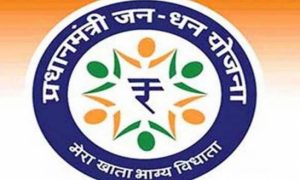Heart inflammation is a serious condition that requires timely medical intervention. Understanding its causes and symptoms empowers individuals to seek help early and reduce risks. By maintaining a healthy lifestyle and being proactive about heart health, you can protect your heart from unnecessary strain and complications.
Heart inflammation, medically known as myocarditis or pericarditis, refers to the swelling and irritation of the heart muscle or the surrounding sac. While it may sound alarming, understanding its causes, symptoms, and treatment options can help manage the condition effectively and reduce the risk of complications.
Read More: Health Benefits Of Neem: Popular Home Remedies For Acne, Dandruff, And Scalp Care
What is Heart Inflammation?
Heart inflammation is categorized based on the area affected:
Myocarditis: Inflammation of the heart muscle (myocardium), often impairing its ability to pump blood effectively.
Pericarditis: Inflammation of the pericardium, the thin sac surrounding the heart. This condition may lead to chest pain and fluid buildup.
Both conditions may occur independently or in combination, and they vary in severity from mild to life-threatening.
Toxins and Medications
Alcohol abuse, illegal drugs (e.g., cocaine).
Certain chemotherapy drugs or antibiotics.
Chronic Diseases
Conditions like sarcoidosis and hemochromatosis can lead to inflammatory processes in the heart.
Unknown Causes
In some cases, the exact cause remains unidentified (idiopathic myocarditis).
Read More: Health Impacts Of Menopause: What You Need To Know?
Diagnosing Heart Inflammation
If heart inflammation is suspected, a healthcare provider may perform:
Physical Exam: Checking for abnormal heart sounds, fluid retention, or other signs.
Electrocardiogram (ECG): Identifying irregular heart rhythms.
Imaging: Chest X-rays, echocardiograms, or MRI scans to detect inflammation or fluid buildup.
Blood Tests: Measuring markers like troponin, C-reactive protein (CRP), or white blood cell counts.
Biopsy: Rarely, a sample of heart tissue is taken for microscopic examination.
Read More: Arthritis: Causes, Early Symptoms And Prevention
Preventing Heart Inflammation
While not all cases are preventable, the following measures can reduce risk:
Vaccinations: Stay updated on vaccines, particularly flu and COVID-19.
Infection Control: Practice good hygiene to prevent viral infections.
Healthy Lifestyle: Avoid smoking, limit alcohol, and maintain a balanced diet.
Regular Checkups: Especially if you have chronic illnesses or a family history of heart disease.
(This article is meant for informational purposes only and must not be considered a substitute for advice provided by qualified medical professionals.)





































